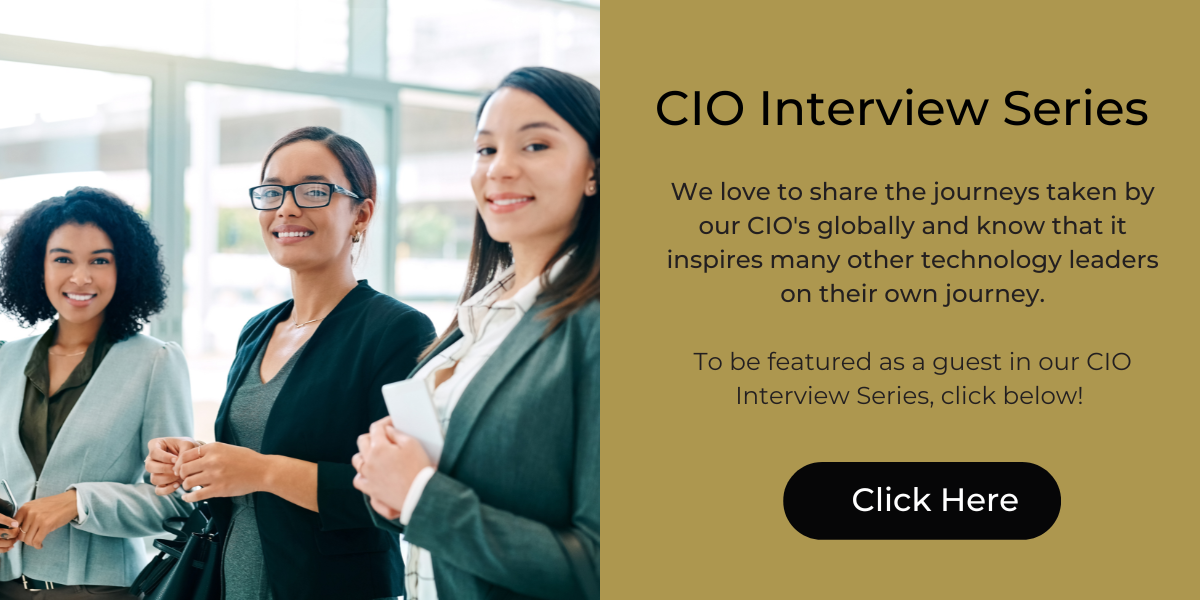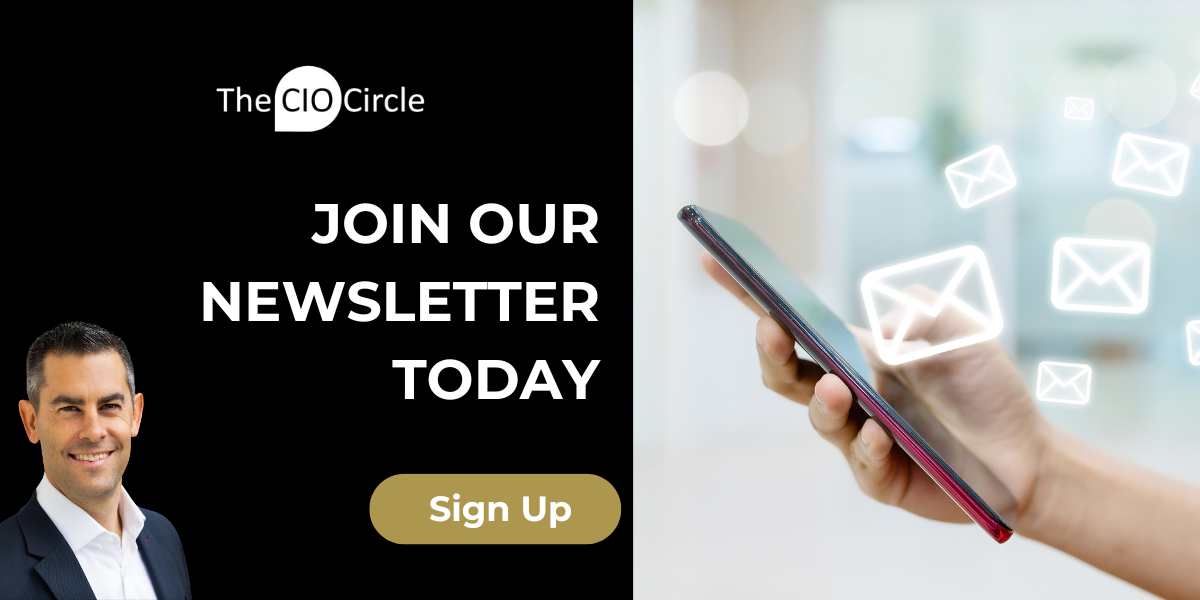MARTIN CARPENTER
CIO at SYNOMICS
Can you please provide a little introduction about yourself
I live in South Buckinghamshire, though born and bought up in North London. I have a home-based CIO role working for Synomics. We are an Agri-tech business, using genomic data to help inform producers to improve sustainability through intervention and selective breeding.
What has your journey to your position been like? What path have you taken?
I started in Finance for Serco, and then managed the internal IT team before crossing the line into full IT territory. Worked for a variety of different organisations, global consultancy as Head of IT, start-ups including current company, Social Housing, and Healthcare. I have tried to enhance my professional qualifications along the way, and am a Chartered Fellow of the BCS, Fellow of the Institute of Directors and in the last year in the first batch of people in the UK to be accredited as a Certified Healthcare CIO, and now on the UK exam panel.
Has it always been your vision to reach the position you’re at? Was your current role part of your vision to become a tech leader?
No. In reality, I just wanted to be in a successful business. Over time I realised that the business had to have a positive impact, so have really enjoyed my time in Health, Housing and now Agri-tech. I am not so interested in position, it's what I am working on and who I am working with which matters most to me.
A few over the years. My first was my father who was a lecturer in Botany at Kings College London. He had a deep interest in people, as well as never getting stressed or worried about anything, a trait that I have “inherited” even though being adopted. The second was Wayne Felton who sadly passed away in Dec 2019. Wayne was the Finance Director in Serco Systems, and showed me it was OK to have fun whilst at work, but also maintain your focus. He was also utterly trustworthy and would go out of his way to make sure that everyone, and especially those who would usually get ignored, were looked after. The third person was Phillip Youell, CEO of what was EC Harris. Phillip had a strategy to grow EC Harris really simply, through investment in people, and it was hugely successful. Secondly, he drove the entire organisation to be outcome thinking, and finally, in order for a leader to add value to a business, you need to think in terms of how are you going to help 1) grow, 2) deliver, and 3) manage the business. I use all three of those principles to this day. The final influential person is Mike Connly, my boss at Optum, who was able to bring huge clarity and simplicity to complex problems, as well as “work the room” when it came to needing to get decisions made. I am pleased to say Mike remains a good friend of mine and regularly seek his counsel.
How do you see the role of the technology leader evolving over the next 5 years?
We are seeing this evolution already. The role of the CIO is split between running the business (CIO), building technology to operate the business (CTO), and enabling digital transformation (CDO). The role of technology leaders will broadly follow these paths but in my view will become more brokers, leveraging, accelerating, and embedding innovation from inside and outside organisations to get rapid competitive advantage and or efficiency and operational gains. Skills required to support this, such as enterprise architecture, security, UI/UX, and integration skills will continue to be in demand.
What skills do you think leaders of the future will need in order to thrive?
Tech and in fact any leaders need many skills. Networking being a key one, the pace of change continues to accelerate, and technologies changing too. The ability to spot where those opportunities may be, bring them in, and scale them will be key.
How do you keep current with new skills, technologies and personal development?
I have some really good networks that I hang out in, and they help me both in technology and personal development.
What do you see as the next leap in technology that will impact your business or industry in particular?
Quantum computing has the potential to disrupt our world fundamentally. In particular, undo all that we know about and believe is a safe way of protecting digital assets. In the industry that I work in, in Agritech its the democratisation of data – and allowing farmers to make interventions at a micro-scale to improve the yields and sustainability of agriculture and in health, to make interventions way before diseases ever materialise in people and provide personalised care.
"People build tech, not the other way around. Build a great team and you can build anything."
If you were mentoring a leader of the future, what advice or guidance would you give to help them on their way?
People build tech, not the other way around. Build a great team and you can build anything.
Is there anything in particular that you would still like to achieve in your career or what is the next step on your journey?
I have recently been diagnosed with Autism Spectrum Disorder. ASD. There is still a lot of stigma associated with Neuro-diversity and I want to change that. Secondly, I am working with the Caribbean Tech scene – in particular the Jamaican Technology and Digital Alliance, and hoping that I can bring some of my skills and experience to bear to help contribute to its success and finally continue to be in a role that has a positive impact.
If you could change one thing in the world, what would it be?
It's very controversial – but I'd get rid of religion if I could. Not from the perspective of everyone having their own beliefs and opinions – which is fine, its just when it gets to the stage people start fighting and killing each as a result of thinking their beliefs are better than others that it is an issue – and its been going on for a couple of thousand years…
A big thank you to Martin Carpenter from Synomics for sharing his journey to date.
If you would like to gain more perspective from Tech Leaders and CIOs you can read some of our other interviews here.
October 19, 2021


